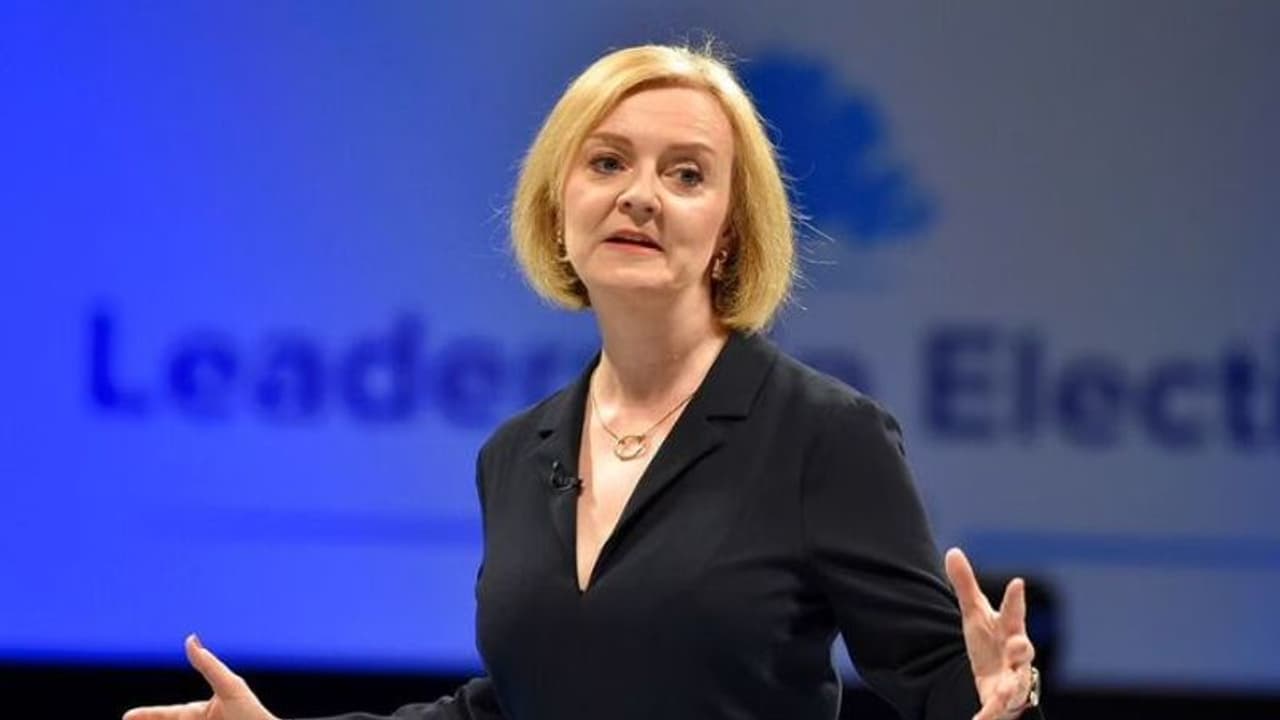It followed days of turmoil in global financial markets, sparked by massive government borrowing costs and the pound plunging against the dollar as the Bank of England intervened to shore up the country's pension funds.
The newly elected Liz Truss-led UK government on Monday made its first significant U-turn on its central plank of tax cuts by withdrawing a policy to abolish the top rate for the wealthiest, following market turmoil and to avert an expected rebellion within the ruling Conservative Party.

Chancellor Kwasi Kwarteng declared that the announcement in his mini-budget last month of a proposed abolition of the 45 pence tax rate, which will apply to the top tier of income taxpayers from next April, had become a major distraction to an otherwise sound economic growth plan.
It came after days of turmoil in global financial markets, spooked by massive government borrowing costs, and the pound plummeting against the dollar as the Bank of England was forced to intervene to shore up the country's pension funds.
"We understand, and we have listened," Kwarteng tweeted before taking to the airwaves to defend the newly appointed government's "screeching U-turn."
Truss, who took over as Prime Minister from Boris Johnson last month after a hard-fought leadership battle with British Indian former Chancellor Rishi Sunak, quickly referenced her Chancellor's tweet, adding, "The abolition of the 45pc rate had become a huge distraction from our mission to get Britain moving."
"Our priority now is to build a fast-growing economy that will pay for top-notch public services, raise wages, and increase opportunities across the nation."
It came just a day after she insisted in a BBC interview on Sunday that her government was still committed to abolishing the top rate of tax for the highest earners, despite critics within her own party seeing it as sending the wrong signal at a time when the majority of the country was dealing with a cost-of-living crisis and soaring household bills.
"It had become a major distraction from what was otherwise a strong package. We just talked to people and listened to them, I get it," Kwarteng told the BBC on Monday morning under intense questioning.
"We are completely committed to the growth strategy. I've been in Parliament for 12 years; many policies have been changed because the government decided to listen to the people," he insisted.
The Chancellor claimed that he did not consider the policy reversal serious enough to consider his own position in the Cabinet and that the government remained focused on his "radical growth plan backed by lower taxes to put more money in people's pockets."
"We can always argue about when we could've made the decision, but the important thing is that we've made the decision, and we can now push forward with the growth plan," he said.
It is seen as a major setback for Truss, who has positioned herself along the lines of former Tory Prime Minister Margaret Thatcher, who famously stated at a Conservative Party conference 42 years ago that the lady is not for turning when it comes to sticking to unpopular policy decisions.
In addition, the Truss-led government's U-turn comes as the Conservatives hold their annual party conference in Birmingham, where the new Prime Minister will deliver her first address to the membership.
The decision to backtrack on a key plank of her tax-cutting agenda came as it appeared increasingly likely that the policy would be voted through in Parliament by her own backbench MPs and at a time when the Opposition Labour Party is racing ahead of the Conservatives in opinion polls with a historical lead.
(With inputs from PTI)
Also read: King Charles III: UK's Royal Mint reveals new coins featuring monarch's portrait
Also read: When Liz Truss, UK's third woman PM, reaffirmed commitment to strengthen ties with India
Also read: Russia to formally annex four more areas of Ukraine after 'sham' referendum
